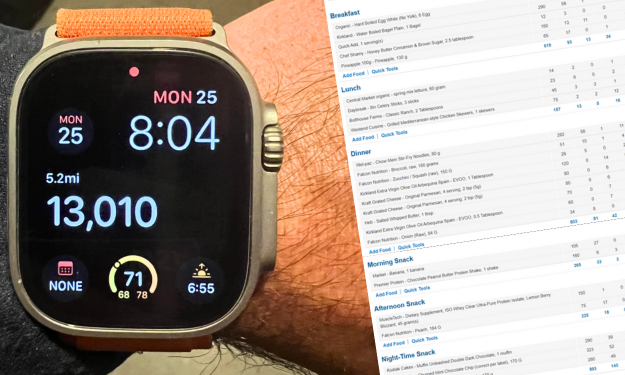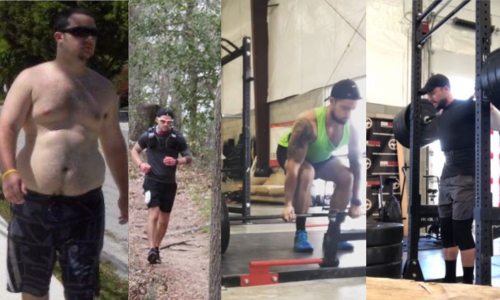Don’t take this diagnosis as a reason to stop exercising like you’ve been doing, you can continue to go to the gym and do your workouts…as tolerated.”
—
Leaving the Ortho yesterday, freshly injected with cortisone and surgery now imminent, those words really stuck in my mind.
“As tolerated”.
What he was saying is that I can continue to do my normal workouts, the damage has been done in a way that it can’t get any worse. Two tears are present and they’re not going to be torn further. Pain level should be used as deciding factor for my limitations, not fear.
Rather than fearing doing damage, I can keep getting in the gym leading up to surgery, and I can do any and all movements that I “tolerate”.
Basically, listen to your body and if something is painful, you should probably stop doing it.
—
It really got me thinking on things far outside the gym.
How much do we ‘tolerate’?
How much discomfort do we live with day to day, and choose to simply tolerate, rather than addressing and fixing however we can?
Near every person I speak to has been living in conflict for a long while before finally deciding to sign up for coaching and work toward losing fat and getting healthier.
They’ve been tolerating their discomfort for months or years in most cases.
Some cannot keep up with their kids or grandkids, some wear a t-shirt at the pool or the beach, some get out of breath walking the stairs at their office, some cannot bring themselves to look in the mirror or hop on the scale.
They wear dark clothing, they wear baggy clothing, they don’t go out socially like they used to.
They’re tolerating the pain they’re living with, the discomfort is real but they just keep tolerating it.
Until they don’t, and they decide the pain of staying in their current situation is far worse than the pain of addressing and correcting things.
—
Another concept this brings to mind is the “cost of inaction”.
If I change absolutely nothing, what will that cost me?
In my case, if I choose to not fix my shoulder, the cost will be massive. Broken sleep will not improve, I will continue wincing every time I play catch with my son, workouts will be forever modified, putting on a jacket or a backpack will continue to cause big time pain, the atrophy in my shoulder will forever be as it is now, and so on. Chronic pain will continue, guaranteed.
For the people I often work with, the cost of inaction looks and feels totally different:
They may stay living in fear of a serious health event.
They may turn down invites from their kids or grandkids to go do something active.
They may stay anxious and depressed about their physical state and suffer huge mental anguish as a result.
They may continue to ‘size up’ every year or two when buying new clothes.
They may watch the years tick by feeling like they’re a spectator in their own life, rather than the star of their own game.
Everyone’s got a different tolerance and everyone’s got a different cost of inaction.
—
What are you currently tolerating, rather than addressing?
What is your cost of inaction?
If you choose to change nothing and it’s ten years down the line, will you be happy with the choice you made?













